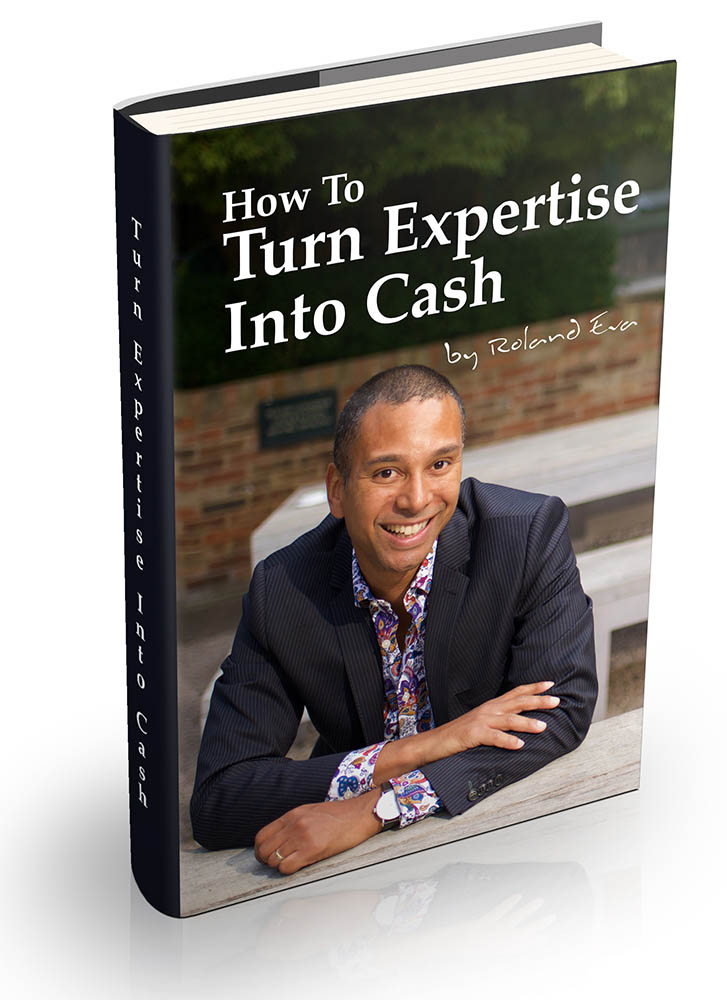What Books Grab You By The Throat
It’s the 10 January 2019, and I’ve already read 3 books this year - Big Magic, Nobody Wants To Read Your Shit, Great Leads.
Surprisingly, I've read one of those books 3 times.
This makes me sound like a voracious reader, the truth is I’m not. I’m a slow reader. I find it difficult to make time for reading.
But…
Nobody Wants To Read Your Shit grabbed me by the throat and forced me to listen and obey.
Here’s some of what I’ve learned…
Stories Are Experienced By The Reader On The Level Of The Soul

Nobody Wants To Read Your Shit is a memoir, a storytelling guide and a manual for succeeding as a creative regardless of your failures and setbacks.
The book is funny. The book is serious. Its written in a conversational tone and filled with research and experience.
Nobody Wants To Read Your Shit is written by Steven Pressfield, a prolific and versatile writer. He has worked in advertising, the movies, written novels in fiction and nonfiction as well as writing self-help books.
His first published novel was The Legend of Bagger Vance which was later turned into a movie starring Will Smith, Charlize Theron, and Matt Damon.
So, what’s the big lesson from the book?
All great writing, whether in advertising, a TED talk, a novel, a webinar, a sales presentation, or self-help books, works because it obeys the rules of storytelling.
Work that is organized around the rules of storytelling (even when you are dealing with a topic without characters, such as gardening tips) is enjoyed by the reader.
Work that is enjoyed by the reader can and will inspire them to take action.
The action you want the reader to take could be to buy your product or service, it could be to read and use your hard-won knowledge so that the reader can enjoy the results just outside their grasp.
Why does it make your work more interesting, and more persuasive if you organise it around the rules of storytelling?
Because stories are experienced by the reader on the level of the soul.
Whether we’re aware of it or not (mostly it’s it unconscious), we are asking ourselves “Does this ring true?”
When a story is told the “right way” it moves is. It satisfies us emotionally. We come to its end feeling like we’ve just had a meal of steak and potatoes.
If you’re thinking, “that sounds crazy” then there’s the scientific proof.
Stories Tap Into The Collective Unconscious
Carl Jung was a Swiss psychiatrist and psychoanalyst who founded analytical psychology.
According to Jung, the hero’s journey (storytelling done right) is a component of the collective unconscious.
Jung found it arising spontaneously in the dreams and neuroses of his psychiatric patients.
The hero’s journey is the term coined by Joseph Campbell in his book The Hero With A Thousand Faces. In this book, Campbell studied the myths, legends and religious stories of virtually every culture on earth. What Campbell found, is that regardless of location, time, or culture, all the stories follow the same structure. Campbell called this structure The Hero’s Journey.
Campbell and Jung speculated that the hero’s journey arose from the accumulated experience of the human race over millions of years. You could think of the hero’s journey as an operating system that each of us is given at birth, hard-wired into our psyches, to help us navigate our passage through life.
As a storyteller, the hero’s journey acts as a template, or a user’s manual. It tells us, “This is how things work, how life works. This is the road map to the way your own life will unfold." At least, that’s been the case in my life. I’ll show you how in just a minute.
You could think of the Hero’s Journey as the ultimate cheat sheet for storytelling, persuasion, and selling.
Let’s take a look at it…
The Hero’s Journey
- Hero starts in Ordinary World
- Hero receives Call to Adventure
- Hero rejects Call
- Hero meets Mentor. Mentor gives hero courage to accept Call.
- Hero crosses Threshold, enters Special World
- Hero encounters enemies and allies, undergoes ordeal that will serve as his Initiation
- Hero confronts Villain, acquires Treasure
- The Road Back. Hero escapes Special World, trying to "get home."
- Villains pursue Hero. Hero must fight/escape again
- Hero returns home with Treasure, reintegrates into Ordinary World, but now as a changed person, thanks to his ordeal and experiences on his journey
That’s the Hero’s Journey as prescribed by Joseph Campbell.
But… you may be thinking… how do I use this?
Telling Your Story With The Hero’s Journey Structure
Does change happen in an instant?
Yes, and No.
The decision to make a change happens instantly, but the build-up to make that change can take many years. Would you agree?
So, how does your story fit within the Hero’s Journey Structure?
Let’s look at the first 4 steps:
#1. Hero starts in Ordinary World
#2. Hero receives Call to Adventure
#3. Hero rejects Call
#4. Hero meets Mentor. Mentor gives hero courage to accept Call.
What does this mean for you?
You are living your life, and it's great. Then something outside of your control forces you to make a change. Because you are unable (you don’t have the necessary skills) and unprepared to make this change, you initially try to do what you’ve always done.
In other words, you Receive A Call To Adventure, and then you Reject The Call.
In my life, I felt the world change on Monday 15 September 2008 when Leman Brothers went bust. In that instance, I knew that the banks would stop lending and that many businesses would reduce their investment in marketing.
I knew that this change was going to kill my corporate work. In that moment, I kissed goodbye to being flown around the world to take pictures and create brochures and websites for multi-national clients.
What I didn’t see on Monday 15 September, was the scale of the change. I didn’t imagine that the number of marriages would fall to a 90 year low.
I knew that weddings cost a lot of money, and I thought that people got married because they loved each other, and had the wedding to match their budget.
Wrong!
When there’s a tidal wave of fear, people stop getting married.
So, my Call To Adventure began when I realised that I had to change my business. This change forced me to focus on Weddings and Portraits as a revenue stream. This change forced me to focus on winning business in a new way.
But what did I do?
I did what I had always done, and got crushed! In Campbell’s words, I Rejected The Call.
Why did I reject the call? Because I didn’t know how to do anything else. Because the knowledge that got me where I was, could not take me where I had to go.
This is when a mentor enters the story.
In my case, I wasted 4 years and £6,000 searching for the right mentor. It wasn’t until I discovered Dan Kennedy, that my eyes were opened to Direct Response Marketing, and I learned that marketing could make money on demand without a sales team. That was the first mentor that gave me to tools and courage to Accept The Call.
How does the story develop from there? And how does it fit within The Hero’s Journey Structure?
Here are the next 3 steps:
#5. Hero crosses Threshold, enters Special World
#6. Hero encounters enemies and allies, undergoes ordeal that will serve as his Initiation
#7. Hero confronts Villain, acquires Treasure
Once my eyes were opened to Direct Response Marketing, and the fact that marketing can make money on demand without a sales team, I Entered Special World.
Believe me, it felt like a special world too. Even today, I think of Direct Response Marketing as another world because so few people know about it. Most people that work in marketing know nothing about direct response. It's a niche, within a niche, within a niche, that has the power to completely change your business and your life.
But…
My eyes were opened to Direct Response Marketing through a book. I didn’t read one book and then know everything. I had to read several books, take online courses and join mentorship programs.
During this time I encountered enemies and had to persevere through my Initiation.
What were the enemies? Fear, failure, disappointment.
Let's face it. Learning by doing is a process of trial and error. Learning is always a process of acquiring new skills and then seeing if you can run with them. The trial of using new skills is always an uncomfortable process. If you are rewarded with stunning success, then it's easy to endure the discomfort.
But…
The change in results is often small, especially at the beginning. So, it’s a lot of hard work for a tiny increase in results.
That’s life, right? This is the truth about self-improvement.
So, when does the Hero Acquire Treasure?
My treasure came in the form of £672,989 in 9 days! That’s a lot of treasure. That’s the real-world feedback that proves your struggle to learn new skills and defeat the villain has been worth it.
But that’s not where the story ends. Not if you want to satisfy the reader. Not if you want to tell your story truthfully.
Here’s the final step in the Hero’s Journey Structure
#10. Hero returns home with Treasure, reintegrates into Ordinary World, but now as a changed person, thanks to his ordeal and experiences on his journey
The truth is that journey of discovery changed me as a person. It gave me a new sense of confidence and optimism. It opened up a new world of possibilities. It proved that hard work never lies and that belief and determination are more important than ability.
Does that feel like the right place to end a story? Does that ring true for your life? Have the challenges that you’ve endured on your journey changed you?
Storytelling Takes Courage
When I teach people how to tell an inspirational personal story, I simplify the hero’s journey to these 3 things:
- Describe the moment when you were caught in a thunderstorm without an umbrella. This is where your story starts. When something outside of your control forced you to make a change.
- What struggles did you go through on your journey
- What does the end of the rainbow look like?
Those are the 3 parts to your story. That's the beginning – middle – end. That's the reality of what happened… and on its own that will be a boring story.
Why?
Because you are missing the most important element!
Emotion
You add emotion to your story by describing how you felt at each stage. That requires courage.
If you have the courage to tell your story honestly both in terms of what happened, and how you felt, then you will tell an inspiring personal story. It’s a story that will obey the structure of The Hero’s Journey. A story that will satisfy the reader emotionally.
Books That Grab You By The Throat
That’s the full and detailed reason why I read the book Nobody Want To Read Your Shit 3 times in a week.
I’m telling you about it because I believe that storytelling is the ONE thing that will move the needle in your business. Storytelling will help you attract your ideal customer, earn their trust and make them feel good about buying. Storytelling is the ONE thing that could double, triple or even 10x your business in the next 12 months.
So, what books have you read this year?
What books would you recommend?
If you've found this blog useful, then please leave a comment below.
If this can help someone you know, then please share it with them.
Until next time…
Carpe diem
Roland Eva
P.S. if you'd like to build your dream business then you need a proven system to find people that need your help and make them feel good about buying.
After many, many failures, I’ve created a simple 5-step system to find people that need your help and make them feel good about buying. This system made me £672,989 in just 9 days!
I’d like to give you a free ebook that reveals: how to use the simple 5-step system that made me £672,989 in just 9 days!
How To Turn Expertise Into Cash

Here’s just a taste of what’s inside:
- How to find your ideal customer – those that desperately need your help and can pay for it.
- How to test your business idea for FREE! And how to scale fast with the proof of market demand.
- How to sell products and services at any price (£5 to £12,000) in any market without a sales team!
- How to make yourself unique… even in a crowded market… so you never compete on price… and easily attract your ideal customer like bees to honey!
- Remove the confusion, fear, and doubt about turning your idea into a profitable business by following a proven 5-step system that made me £672,989 in just 9 days!
To download your free copy just click the link below:
How To Turn Expertise Into Cash
I’ve used this system to make £672,989 in just 9 days… and £6 million in 12 months!
I’ve used this system to help hundreds of entrepreneurs to make a giant leap in sales, so I'm confident that it will work like magic for you too.
Grab your FREE copy by clicking the link below:
About The Author

Roland Eva is a copywriter and marketing trainer, mentor and consultant.
For the last 5 years, Roland has helped authors, coaches, mentors, and trainers in the property, technology, finance, personal development, and business opportunity markets to fill seminars and sell high-end programs ranging from £1,000 to £6,000 by telling true stories that inspire people to change their lives. Many campaigns have made over £500,000 in just 9 days.
Roland’s marketing journey began when he lost his first business, a photography and graphic design studio. The pain of watching his business slowly die, motivated him to discover a proven system to find your ideal customer, earn their trust and make them feel good about buying.
Today Roland’s mission is to prevent every business owner from suffering through the same pain as he did. Roland wants to take entrepreneurs on the ecstatic ride that comes with having a proven system to turn leads into happy paying customers. Roland helps entrepreneurs in 3 different ways:
- Training– Roland will teach you how to use his simple 5 step system
- Mentorship– Roland will do the work with you
- Consulting– Roland will do the work for you
To contact Roland, please email him on: Roland.Eva@RolandEva.co.uk
